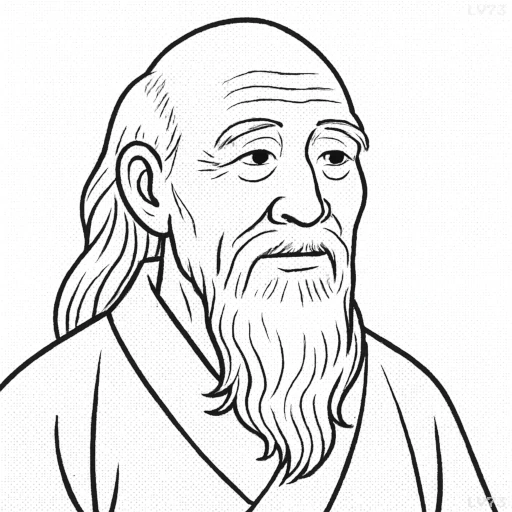“It is better to do one’s own duty, however defective it may be, than to follow the duty of another, however well one may perform it. He who does his duty as his own nature reveals it, never sins.”

- 571 BC? – 470 BC?
- Born in China
- Philosopher
table of contents
Quote
“It is better to do one’s own duty, however defective it may be, than to follow the duty of another, however well one may perform it. He who does his duty as his own nature reveals it, never sins.”
Explanation
This quote from Laozi emphasizes the importance of authenticity and self-awareness in fulfilling one’s responsibilities. Laozi suggests that it is better to perform your own duty—even if it is imperfect—than to adopt the role or expectations of someone else, no matter how skillfully you might do it. True fulfillment comes from acting in alignment with one’s own nature, rather than trying to conform to external expectations or imitating others. By staying true to what one is naturally inclined to do, one avoids disconnection and inauthenticity, and lives in harmony with the Dao. Laozi’s idea reflects a deep trust in the self and a call to honor one’s unique role and path in life.
In modern times, this message can be applied in many areas, particularly in career choices, personal values, and relationships. People often face pressures to follow others’ paths or take on roles that are expected of them, whether by society, family, or colleagues. Laozi’s wisdom teaches that authenticity is far more valuable than external success. For instance, an individual who follows their passion, even if it leads to a less conventional or imperfect path, is likely to find greater satisfaction and fulfillment than someone who excels at a role that does not align with their true self. The act of self-discovery and following one’s own natural inclinations helps avoid a sense of dissonance or internal conflict.
The quote also touches on the idea of moral integrity—by performing one’s duty according to their own nature, a person remains true to their values and principles. When we act out of alignment with who we are, we may unintentionally stray from the path of righteousness. By staying connected to our own intuition and authentic self, we can avoid the mistakes or sins that arise from trying to live a life that is not ours to live. This principle encourages people to embrace their individuality and trust in the natural wisdom they already possess, knowing that true fulfillment and virtue come from living authentically and responsibly according to one’s own nature.
Would you like to share your impressions or related stories about this quote in the comments section?

